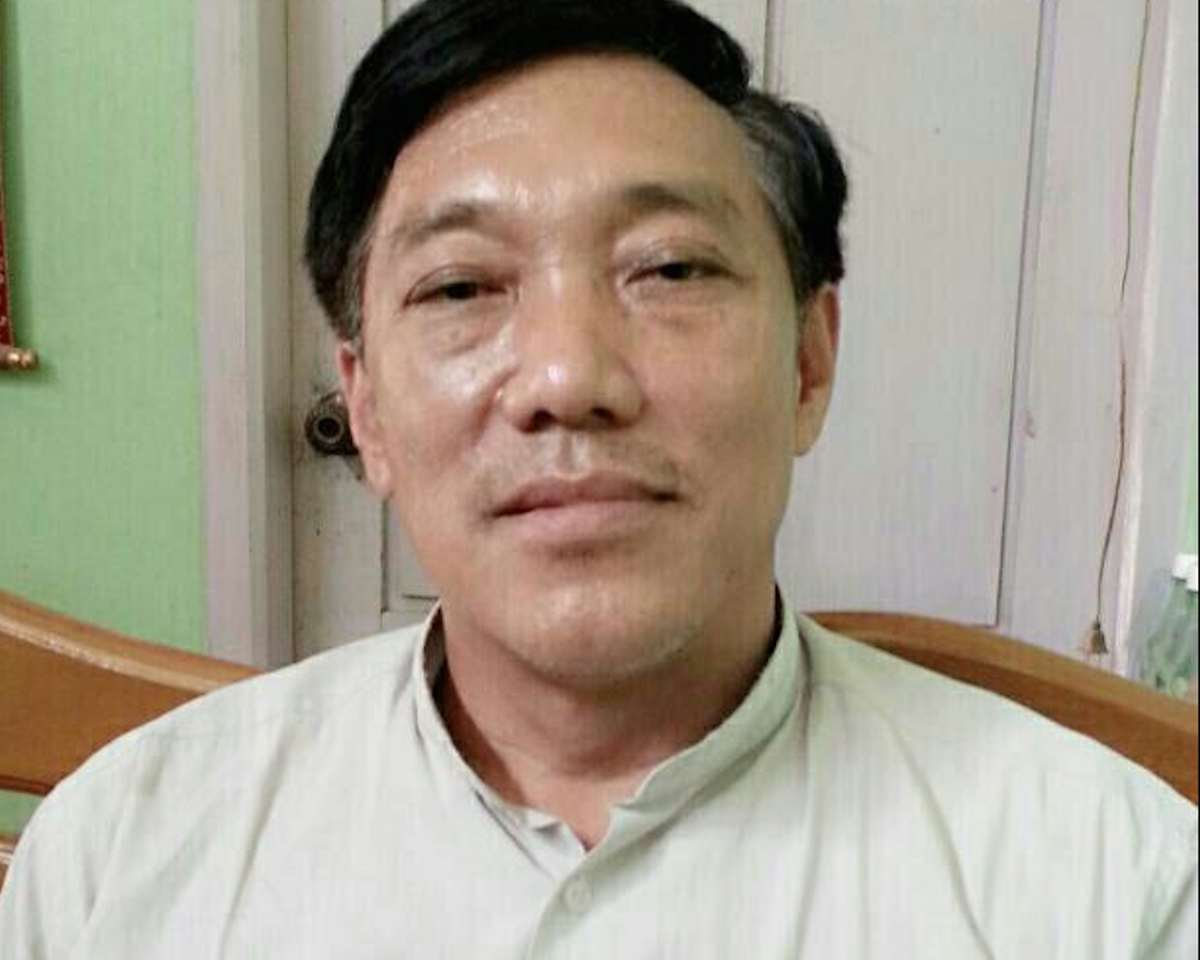The Kokang minority of northern Shan State are ethnically Chinese but citizens of Burma who, like many other minorities, have long suffered from instability, conflict and illicit drug trade in the region.
In 2015, a full-scale conflict erupted between government forces and Kokang rebels of the Myanmar National Democratic Alliance Army; some 100,000 Kokang civilians fled, mostly to neighbouring China. The rebel group has not been invited to join the nationwide ceasefire talks, which are due to resume under the National League for Democracy (NLD) government.
In 2010, some Kokang leaders founded the Kokang Democracy and Unity Party based out of Lashio, a city with a large Kokang community. In last November’s elections, Yan Kyin Kan won a lower house seat for the party in Kunlong Township’s Constituency (2).
In a recent interview with Myanmar Now, the 52-year-old, newly minted MP talked about the issues facing his region and the state of conflict and drug trade there.
Question: Why was the Kokang Democracy and Unity Party formed?
Answer: We established a political party after having discussions with the elders at our Kokang Culture Office. I was nominated [to run for office] as I am an educated party member. Our party also has a few other ethnic peoples, in addition to the Kokang.
Q: Can you tell us a bit about your personal background?
A: I am an engineer, I graduated in 1987. I am a vice-chairman of the Kokang Democracy and Unity Party, as well as a member of the lower house’s Transport, Communication and Construction Committee.
Q: Are many of the Kokang people interested in politics and did many of them vote in the last elections?
A: Most of the Kokang people live in rural and suburban areas, while those in urban areas are only interested in business. Like other Burmese people, many Kokang people are afraid of politics and stay away from it. They just concentrate on their livelihoods. They regard politics as only concerned with politicians and activists. So, I had to disseminate voter education to them to encourage them to vote, and I spent less time on my campaign.
Q: Does your party have any ties with the USDP or NLD?
A: The Kokang people have no high expectations of politics. We just aim to promote some sectors in our region, such as education and health care in line with government policies. So we don’t argue about the policies of the ruling parties and we try to have good relationships with both these parties. We will cooperate both with the USDP and NLD for regional development programs. We have witnessed that the NLD is now prioritising ethnic affairs.
Q: What are your party’s priorities for the development of the Kokang people?
A: Some Kokang people don’t understand the Burmese language, but it is the official language of this country. So, Kokang people need to understand Burmese. Only then would they have knowledge about government policies. If our people don’t know these policies, they would be a burden on the development programs. Now, almost every village in Kokang area at least has a school, and our party is persuading locals to send their children to school. Then they could know state policies by reading newspapers.
Q: What is the situation with regard to the drug trade in Kokang areas?
A: The Kokang and Wa areas were once under the control of the Communist Party of Burma. These were conflict areas with a lack of rule of law. Armed conflict was followed by drug trade. At the time, Kokang people simply regarded poppy as a seasonal crop. However, poppy growing declined [around the year 2000] after a plan for cultivation of substitution crops was adopted with international assistance.
In the past, poppy was grown on every farm, but now poppy cultivation has been substituted with sugarcane, tea and other seasonal crops. Such crops are grown commercially for the border market. People have gained profits from this. As Kokang and Wa regions are notorious for poppy cultivation, it is not strange that some drug abuse still prevails in these areas, which lack of rule of law and have armed conflict.
[related]
Q: What steps are required to achieve peace in the Kokang Region?
A: A rehabilitation process is crucial for these war-torn areas. The civil war delayed education, the economy and social development in these areas. But we can find a solution for the crisis only after armed groups stop fighting and sit down for negotiations. Both sides need to show a genuine desire for a ceasefire in order to build up mutual trust.
Q: What are your thoughts so far on the new NLD government’s actions?
A: I have found that NLD government has considered the role of ethnic people since the beginning of the new parliament. Now, there is a good political landscape. It is too early to comment on this government, although the initial phase looks good. We need to wait and see. If they could serve the interest of all people, they would gain public support for their political approach.



